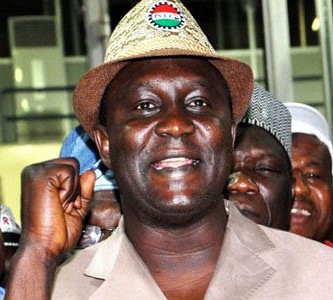The Nigeria Labour Congress (NLC) has given the Federal Government two weeks ultimatum to reverse the recent increase in electricity tariffs and fuel price hike or the union may be forced to embark on indefinite industrial action and mass protests.
The decision was reached at the end of the Congress’ National Administrative Council (NAC) and Central Working Committee (CWC) meetings of the Labour union in Abuja on Wednesday.
Briefing journalists at the end of the congress, NLC President , Comrade Ayuba Wabba, said the union resolved that the increase in both petroleum products and electricity tariff have had adverse effects on the citizenry and should be returned to status quo in the interest of the masses.
It would be recalled that , the Trade Union Congress (TUC) through its President Quadri Olaleye, had on Monday issued a seven-day ultimatum and threatened to mobilize for strike next week Wednesday if the Federal Government does not reverse the increases.
A meeting between the Federal Government and organized labour at the Banquet Hall of the Presidential Villa, Abuja on Tuesday to find common ground, ended in a stalemate as the Unions disagreed with the Federal Government, stressing the increases are a burden on Nigerian workers even as government insisted the hikes were necessary.
President of the NLC, aacondemned the fixing of prices of electricity and petrol without consultations with Nigerians, which he said have erased the gains of the minimum wage of N30, 000 signed into law by President Muhammad.
The NLC President blamed Federal Government for “transferring the “inefficiency in the subsidy regime” to the consumers which they have to pay through hike in price even as he urged the government to fix the nation’s refineries and stop the corruption inherent in the subsidy regime.
However, the government delegation led by the Minister of Labour and Employment, Chris Ngige, during the tripartite dialogue with organized labour in Abuja on Tuesday, reeled out figures which it said makes the continuation of subsidy a risk to the economy.
In the electricity tariff, the Government explained that N1.5 + trillion has been spent on subsidizing the sector since 2015, adding that the subsidy cost the Government N12 billion+ per week and N50 billion per month.
“The subsidy is a regressive subsidy as 60%of the subsidy goes to the top 10% of the population; more than 80 million Nigerians have no access to electricity and do not enjoy this subsidy,” it said.
The government said it has set aside N380 billion for the tariff subsidy in 2020 with the intent to transition subsidy to cover the poor and underprivileged.
NERC designed a service based tariff where payment is linked to better service with DISCos to own consultations with their customers; only those receiving 12 hours plus of power are experiencing increase.
“75% of the population will not be impacted by any tariff increase, Government will continue to subsidize and prioritize this population (including the poor on R1) with N400 plus billions,” the government said.
On the much controversial fuel subsidy, the government delegation said “Fuel subsidies have over the years undermined private and Public investment in the downstream sector.
“PMS subsidy reduces payment of FAAC and states allocation, leading to inability of many states to pay workers salary and develop their states.
“Government lost billions of naira every day to subsidize payment which could have been used in improving the well being of ordinary Nigerians and rebuilding the economy to generate more employment.” The Federal government said.
It added that subsidy payments to marketers were a major source of corruption and underhand dealings in the downstream oil and gas industry even as it lamented that this was one of the reasons of no new investment Refinery in Nigeria for over forty years.
The government said fuel subsidy was, responsible for restricted growth along the value chain and consequent lack of employment and revenue generation.

